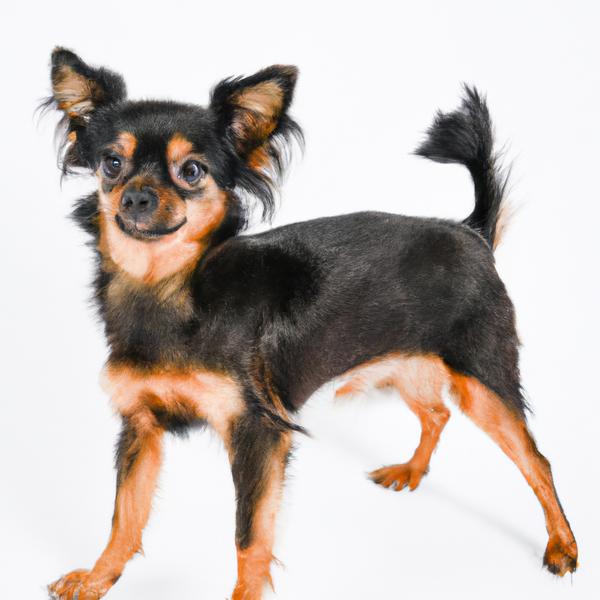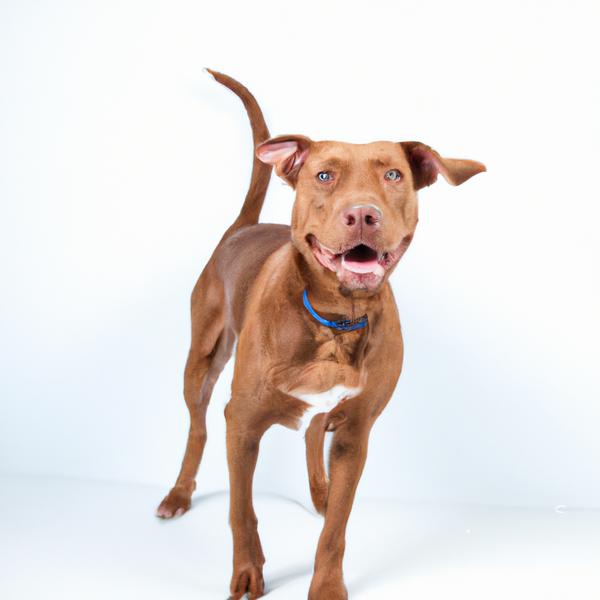Brusselranian vs. Doxie-Pit: Breed Differences and Similarities
Hypoallergenic
Are Brusselranians or Doxie-Pits hypoallergenic, or neither?
Unfortunately, neither Brusselranian nor Doxie-Pit are hypoallergenic, which may not make them the best choice for dog lovers who suffer from pet allergies.
Temperament
What are the personalities of Brusselranian and Doxie-Pit dogs?
Active
Playful
Alert
Sensitive
Intelligent
Friendly
Docile
Lively
Sociable
Inquisitive
Attentive
Trainable
Selfish
Watchful
Companionable
Extroverted
Playful
Stubborn
Clownish
Courageous
Intelligent
Friendly
Affectionate
Obedient
Loyal
Devoted
Lively
Strong
Willed
Aggressive
Clever
Shedding Level
Do Brusselranians shed more than Doxie-Pits, or which breed sheds more, Brusselranians or Doxie-Pits?
Brusselranian or Doxie-Pit dogs are low shedders. The coat sheds an average amount and doesn't require much care.
Origin
What is the origin of Brusselranian and Doxie-Pit dog breeds?
United States
United States
Ancestry
What are the origins of Brusselranian and Doxie-Pit breeds?
Pomeranian, Brussels Griffon
American Pit Bull Terrier, Dachshund
Date of Birth
When were Brusselranian and Doxie-Pit breeds first developed?
Unknown
2000s
Eye Color Possibilites
What are the eye colors of Brusselranian and Doxie-Pit dogs?
Brown
Brown
Nose Color Possibilites
What are the natural nose colors of Brusselranian and Doxie-Pit?
Black
Black
Brown
Coat Color Possibilites
What are the natural colors of the coat for Brusselranian and Doxie-Pit breeds?
Black
Gray
Red
Brown
Fawn
Brown
Brindle
Coat Length
What is the typical coat length for Brusselranian and Doxie-Pit breeds?
Brusselranians are known for their coat length.
Doxie-Pits have short coats.
Coat Density
What is the density of the coat of Brusselranian and Doxie-Pit?
Coat Texture
What is the hair texture of Brusselranian and Doxie-Pit?
Wiry
Straight
Litter Size
What is the usual litter size for Brusselranian and Doxie-Pit?
A Brusselranian can have a litter of 1-3 puppies on average. However, it's worth noting that the size of the litters can vary greatly. Factors that can influence litter size include the health of the mother, breeding history, and genetics.
A Doxie-Pit can have a litter of 4-8 puppies on average. However, it's worth noting that the size of the litters can vary greatly. Factors that can influence litter size include the health of the mother, breeding history, and genetics.
Adaptability
Brusselranians are highly adaptable and versatile, making them excellent companions for families and individuals of all lifestyles.
Doxie-Pits are known for their adaptability and can adjust well to different environments and lifestyle changes.
Health Issues
Between Brusselranian and Doxie-Pit, which breed is more prone to health problems?
Brusselranian and Doxie-Pit breeds are generally considered to be healthy. However, like all breeds, they are susceptible to certain health issues and it is important to keep an eye out for them and address them with your veterinarian as needed.
Major Concerns
What are the major health concerns for Brusselranian and Doxie-Pit breeds?
Patent Ductus Arteriosus
Intervertebral Disc Disease
Hip Dysplasia
Legg-Calve Perthes Disease
Minor Concerns
What minor health issues should be kept in mind when owning Brusselranian and Doxie-Pit?
Patellar Luxation
Entropion
Progressive Retinal Atrophy
Cataracts
Mono/Bilateral Cryptorchidism
Hydrocephalus
Tracheal Collapse
Sick Sinus Syndrome
Patellar Luxation
Elbow Dysplasia
Demodicosis
Cataracts
Glaucoma
Hypothyroidism
Occasional Tests
What occasional tests are recommended for Brusselranian and Doxie-Pit breeds?
Blood Test
Hip X-Rays
Physical Examination
Eye Examinations
Eye Examination
Physical Examination
Radiographs
Social Needs
Brusselranian vs Doxie-Pit social needs comparison
Brusselranian has very high social needs and requires regular mental and physical stimulation, a job or purpose, and companionship.
Doxie-Pit has above average social needs and thrives with interaction with humans and other dogs.
Sleeping Need
Which of the two sleeps the most/least: Brusselranian or Doxie-Pit?
Brusselranians are known for their relaxed and calm nature and enjoy long periods of sleep.
Doxie-Pits have moderate energy levels and typical sleep patterns of 12-14 hours per day.
Mouthiness
Mouthiness Comparison: Brusselranian vs Doxie-Pit?
Roaming urge
Brusselranian vs Labrador: Running away tendency?
Prey Drive
Brusselranian or Doxie-Pit - which breed has a higher level of prey drive?
Activity Level
Which breed has higher energy, Brusselranians or Doxie-Pits?
Brusselranian and Doxie-Pit are high-energy dogs that require a lot of mental and physical exercise. Without proper stimulation and attention, these breeds can become problematic. If you're considering these breeds, be prepared to invest time and effort in their exercise and training.
Tolerance of being left alone
Walks per Week
How many miles should Brusselranian or Doxie-Pit walk each week?
There's really no limit to how far you walk your dog as long as they're comfortable. For Brusselranian, it's at least 10 miles / week. Just remember to build distance and stamina gradually over time.
There's really no limit to how far you walk your dog as long as they're comfortable. For Doxie-Pit, it's at least 11 miles / week. Just remember to build distance and stamina gradually over time.
Activity per Day
Do Brusselranians or Doxie-Pits require more exercise?
In general most Brusselranians usually need at least 60 minutes of exercise daily. This can be spread across the day and include all sorts of high-energy activities, like walking, running and playing.
In general most Doxie-Pits usually need at least 120 minutes of exercise daily. This can be spread across the day and include all sorts of high-energy activities, like walking, running and playing.
Grooming
Which breed is easier to maintain in terms of grooming, Brusselranians or Doxie-Pits?
Brusselranians require significant grooming, including regular trims and professional grooming assistance to maintain their coat. They may also require frequent bathing to keep their coat and skin healthy.
The Doxie-Pit has low grooming needs and is easy to maintain.
Brushing Frequency
What is the recommended brushing frequency for Brusselranian and Doxie-Pit dogs?
Brusselranian and Doxie-Pit should be brushed at least once a week. Of course, you can give them more frequent brushes if you find that they are still shedding a lot.
Brushing Tools
What brushing tools are used for Brusselranians and Doxie-Pits?
Pin Brush
Slicker Brush
Comb
Nail Clipper
Slicker Brush
Comb
Nail Clipper
Cups
How much food should be given to Brusselranian or Doxie-Pit in cups?
For an average 3-10 pound (1 - 5 kg) Brusselranian feed 1 cups daily. But, keep in mind, the amount you feed is going to be dependent on the quality of the food you are feeding.
For an average 20-30 pound (9 - 14 kg) Doxie-Pit feed 3 cups daily. But, keep in mind, the amount you feed is going to be dependent on the quality of the food you are feeding.
Daily Cost
Which breed has a higher daily cost, Brusselranian or Doxie-Pit?
The average cost of a Brusselranian is somewhere $1.40 - $1.70 per day.
The average cost of a Doxie-Pit is somewhere $1.70 - $2.00 per day.
Monthly Cost
Which breed has a higher monthly cost, Brusselranian or Doxie-Pit?
The average per month expenses of a Brusselranian is between $35 - $42. This makes an average of $420 - $504 per year. It will be on the higher side when the dog is still small because it will need more frequent visits to the vet, shots.
The average per month expenses of a Doxie-Pit is between $48 - $49. This makes an average of $576 - $588 per year. It will be on the higher side when the dog is still small because it will need more frequent visits to the vet, shots.
Sensitivity Level
How do Brusselranian and Doxie-Pit compare in sensitivity?
These breeds are more sensitive than others and easily overwhelmed by new surroundings and people. Brusselranian and Doxie-Pit need gentle handling and a calm, stable home environment with positive reinforcement training.
Apartment Friendly
Which breed is more apartment-friendly: Brusselranian or Doxie-Pit?
Brusselranians make excellent apartment dogs, being fairly active indoors and not requiring a yard.
Doxie-Pits are good apartment dogs as long as they get enough exercise and stimulation outside of the apartment.
Child Friendly
Do Brusselranians or Doxie-Pits have a friendlier temperament towards children?
Brusselranians are not the best choice for families with kids.
Doxie-Pits have an average level of friendliness towards children.
Senior-friendly
Which dog is more suitable as a pet for the elderly - Brusselranian or Doxie-Pit?
Cat Friendly
Do Brusselranian or Doxie-Pit breeds have a better compatibility with cats?
Brusselranians are very friendly with cats and make great companions for them.
Doxie-Pits are somewhat cat friendly and can be trained to get along with cats.
Dog Friendly
Which breed is more sociable with other dogs: Brusselranian or Doxie-Pit?
Brusselranians are average in their friendliness towards other dogs, and socialization can help.
Doxie-Pits are less friendly towards other dogs, but can improve with socialization.
Pet friendly
How do Brusselranian or Doxie-Pit dogs interact with other pets?
Stranger Friendly
Which breed is more friendly with strangers: Brusselranian or Doxie-Pit?
Brusselranian and Doxie-Pit are average friendly around strangers. They can be wary around strangers and a little standoffish, so early socialization is key to ensure they are comfortable around new people.
Playfulness
Which breed is more playful between Brusselranian and Doxie-Pit?
Brusselranians have an average level of playfulness, enjoying playtime like most dogs but not excessively so.
Doxie-Pits are a playful breed that needs daily playtime to be happy.
Trainability
How do the trainability levels of Brusselranians and Doxie-Pits compare?
Brusselranians are usually easy to train but require consistency to fully obey commands.
Doxie-Pits are popular for their ease of training and quick learning ability.
Compare Brusselranian with other breeds
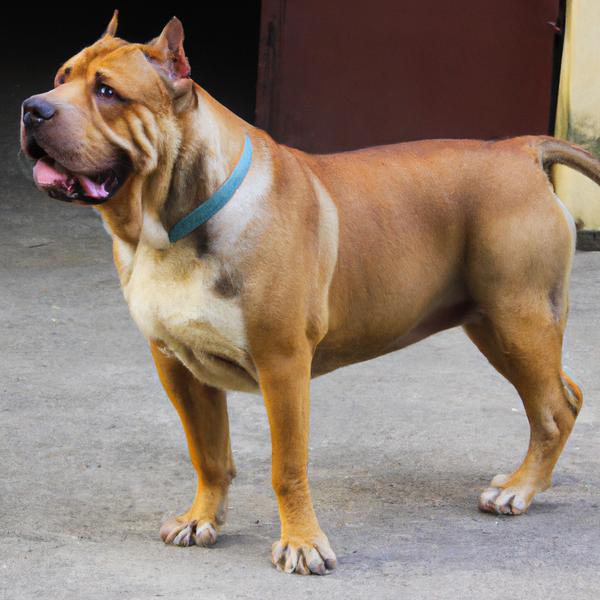
Masti-Bull
Brusselranian vs Masti-Bull
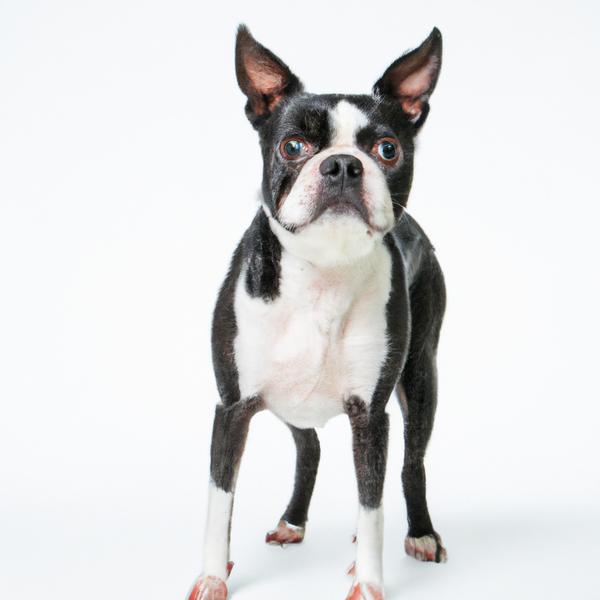
Boston Malterrier
Brusselranian vs Boston Malterrier

Golden Sammy
Brusselranian vs Golden Sammy

American Cocker Spaniel
Brusselranian vs American Cocker Spaniel
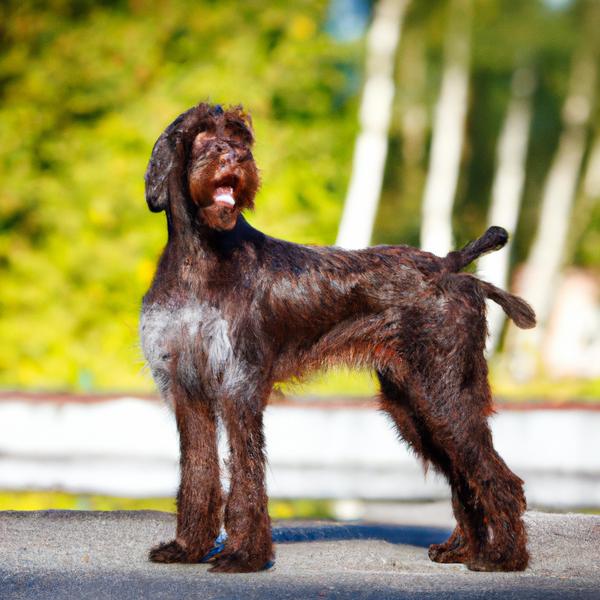
Irish Russian Spanterrier
Brusselranian vs Irish Russian Spanterrier

Lha-Cocker
Brusselranian vs Lha-Cocker
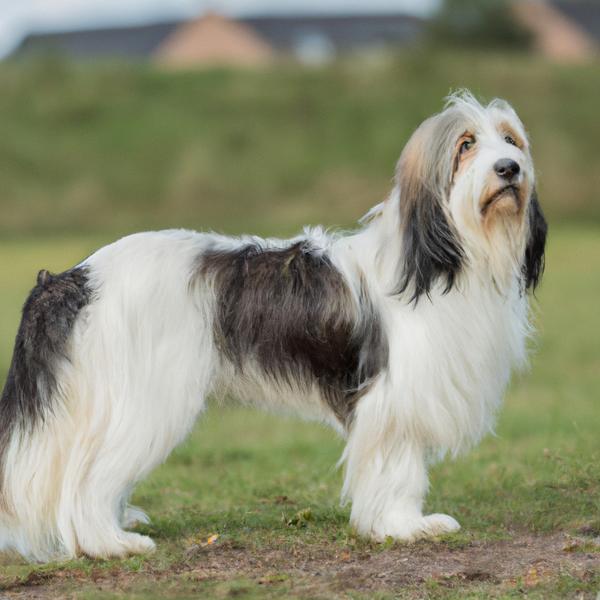
Havallon
Brusselranian vs Havallon
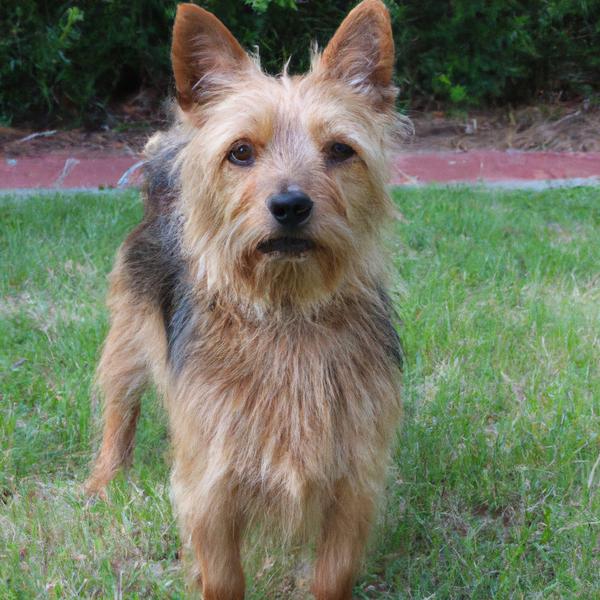
Australian Terrier
Brusselranian vs Australian Terrier
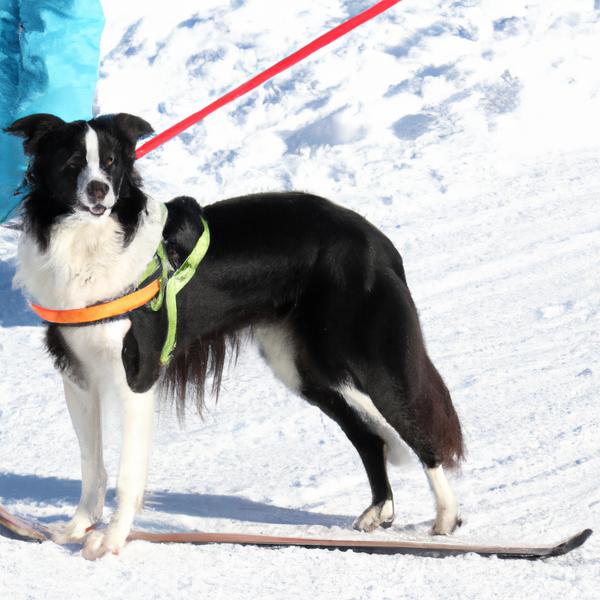
Ski-Collie
Brusselranian vs Ski-Collie
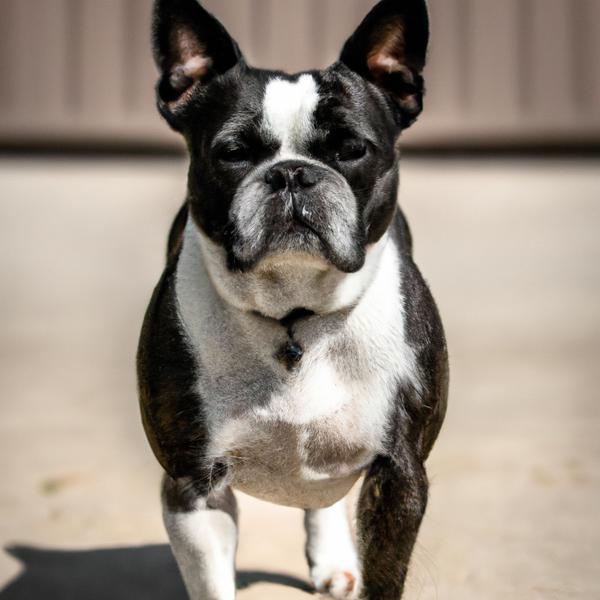
French Bull Tzu
Brusselranian vs French Bull Tzu
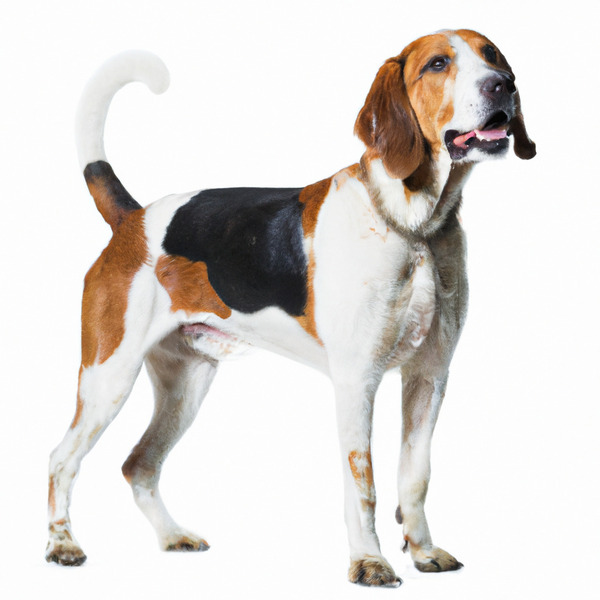
American Foxhound
Brusselranian vs American Foxhound
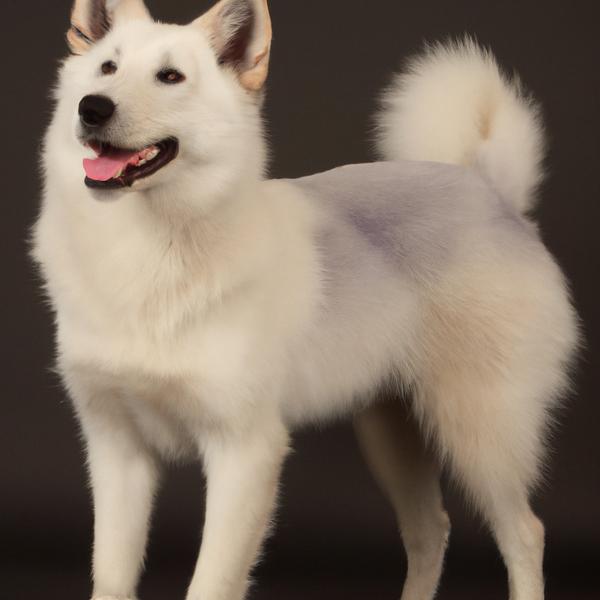
Australian Eskimo
Brusselranian vs Australian Eskimo
